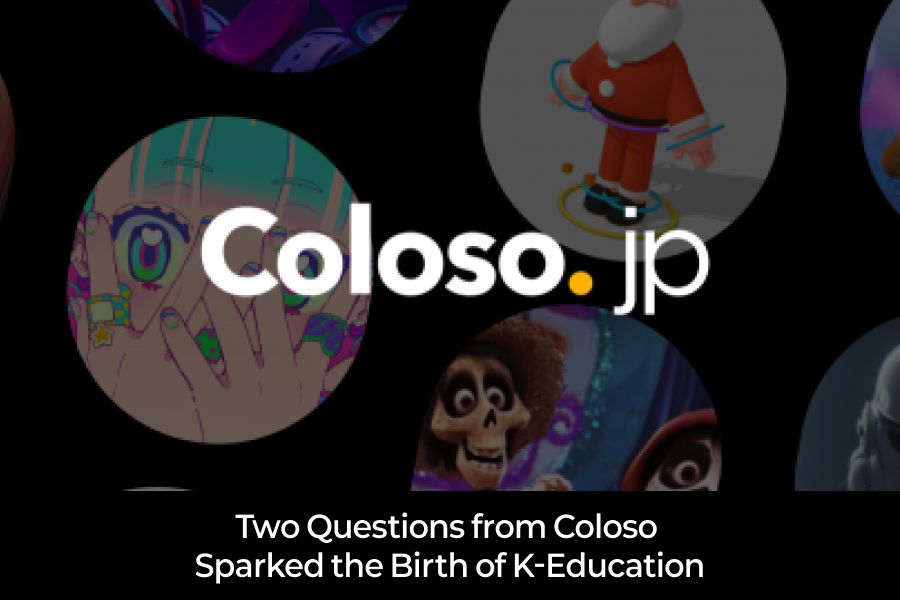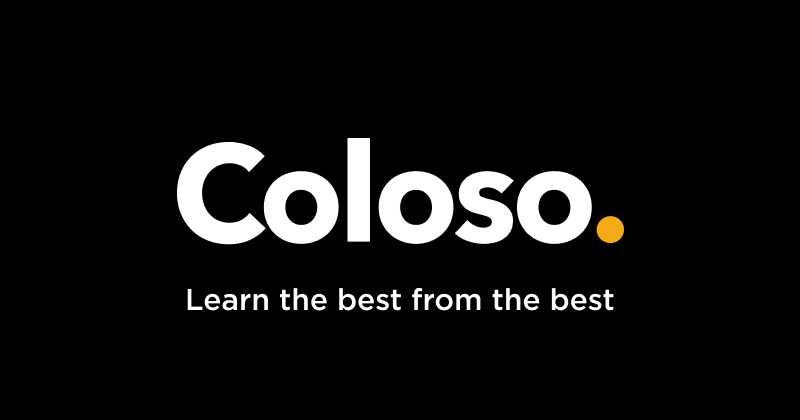Coloso: Redefining Online Education and Breaking Global Barriers

Online Courses: Just for Domestic Use?
You won’t find anyone watching lectures for the Korean college entrance exam abroad. Why would they? Foreigners don’t take the exam. It’s the same for public service or certification prep courses—these “domestic” exams don’t generate much international demand. As a result, online education content has typically stayed within Korean borders, with no one thinking about exporting it.
But that changed when one day, a Korean “online course” was being discussed on Reddit, the largest online community in the U.S.
“Coloso’s courses are really solid. They come with detailed notes and screenshots of everything. The lessons themselves are deep and well-structured—you just need time to digest it all.”
— Reddit user: ghostface176“The course content is fantastic, and the instructors are great. I highly recommend it if you can commit the time.”
— Reddit user: DoubleLdngth3546
Much like the questions and answers that flood the online forums of Korea’s DC Inside, similar conversations began popping up on Reddit about Coloso. While some American users—unused to subtitles—expressed frustration, many others acknowledged the high quality of the instructors and the courses. When a product or service starts generating buzz in a community, especially with positive testimonials, it’s a strong indicator of success. It marked the birth of “K-Online Education” being recognized overseas, with Coloso leading the charge.
*Reddit, with 50 million daily users, is a massive U.S.-based community platform where users exchange questions and opinions on various topics.
Coloso’s Second Question: Can online education content succeed overseas, just like other forms of media?

It’s been long believed that while educational systems can be exported, the content itself can’t. But Coloso CIC’s CEO Kim Dong-hyuk questioned this industry assumption. He wondered if the time was right for Korean online education content to go global. Coloso, after all, had been creating expert-level content in fields like illustration and design—skills that transcended nationality. So, why not take it abroad?
“As a content creator, it made perfect sense to export our courses,” Kim explained. “There’s no expiration date on these lectures, and there are no costly delivery fees. We had quality content ready, and I didn’t see language barriers as a serious issue.”
International Sales: The Big Upset
Coloso used GDP as a primary factor when selecting countries for expansion. They needed markets that could afford high-quality educational content. Japan and the U.S. were natural choices—both with strong demand in categories like illustration and baking, areas where Coloso already had expertise. Coloso launched in Japan in October 2021 and in the U.S. by December of the same year.
One year after the launch, the Japanese market, where Coloso had no direct competitors, exploded in growth. The U.S. market, meanwhile, experienced steady growth driven by a passionate fanbase and strong word-of-mouth.
By December 2022, international sales accounted for nearly 40% of Coloso’s total revenue.
Curation Over Localization

Not every category launched in Korea could be rolled out overseas. For instance, hairdressing techniques didn’t easily translate to countries with different hair textures, making it impractical to market Korean hairdressing courses abroad. Instead, Coloso focused on more universally applicable categories, such as game design, animation, and illustration.
Rather than completely localizing content, Coloso curated courses to fit the interests of its foreign audience. The instructors already had sizable fanbases, which helped drive initial sales. As word spread about the quality of the courses, more people joined, and the numbers followed. This wasn’t a coincidence—it was the result of strategic decisions made after thorough market research, identifying creators with significant followings in Japan and the U.S.

Coloso’s First Big Question: Why are there no online courses for hairdressers when there are more of them than data scientists?
This is the question that sparked the creation of Coloso. Kim Dong-hyuk, the company’s CEO, had been working as a content planner at FastCampus, building online courses focused on professional skills. But something was missing. While the data science and design tool courses were popular, Kim felt there was an untapped market for other fields.
Most online vocational courses at the time catered exclusively to white-collar professionals. FastCampus, too, focused on content for office workers. Yet, there was a glaring absence of courses for freelancers and self-employed professionals—like hairdressers—who traditionally learned through apprenticeship. Kim believed that the lack of online education in these fields wasn’t because it was impossible, but because no one had ever tried.
“If you wanted to become a cartoonist, you’d traditionally have to apprentice under a famous artist, just like you’d start as a dishwasher in a chef’s kitchen to eventually become a cook. But it doesn’t have to be that way anymore. The key was simply creating the opportunity—and that’s where Coloso came in.”

Coloso’s first major hit was a course by renowned hair designer “L,” known for his expertise in styling hair for men with thinning hair. While many doubted anyone would want to learn hairdressing online, Kim and head of planning, Jang Hyung-beom, believed in the course’s potential. The results? On the first day of its release, the course generated a record 230 million KRW in sales.
Today, Coloso’s roster includes top Korean hair designers like L, Choi Jin, Seong Je, and Kwan. In the dessert world, they feature star pastry chefs from popular shops like J’s and Le Soleil. In illustration, they’ve attracted Marvel artists like Kim Rak-hee and Seok Jeong-hyun, as well as international talents like Rinotuna and Mo-gun. And in creative industries, Coloso’s instructors come from some of the biggest names in entertainment, such as Disney, Pixar, and Apple.
Having launched in 2019, Coloso saw explosive growth within its first year, reaching 10 billion KRW in revenue and achieving a 300% growth rate. By 2021, that number had skyrocketed to 24 billion KRW.
Coloso’s Next Big Question
As Coloso continues its rapid growth both at home and abroad, new challenges are emerging. In Korea, the end of the pandemic has tempered the growth of online learning, forcing the company to rethink its domestic strategies. Meanwhile, overseas, the company is striving to exceed its initial success. While they’re still searching for the answers, one thing is certain: Coloso will continue to challenge the status quo. Asking tough questions has become part of the company’s DNA—not just for the CEO, but for everyone in the organization.
✍️Key Takeaways:
- Great content transcends language barriers. When you focus on the core of what you’re delivering, the message can travel across borders.
- As Korean content gains unprecedented global attention, it’s worth considering what remains untapped and undiscovered.
- Just as Coloso questioned the narrow focus on white-collar education, businesses need to look beyond the obvious to discover where content is truly needed.
- Asking the right questions can transform your business. What questions are you asking in your work?

